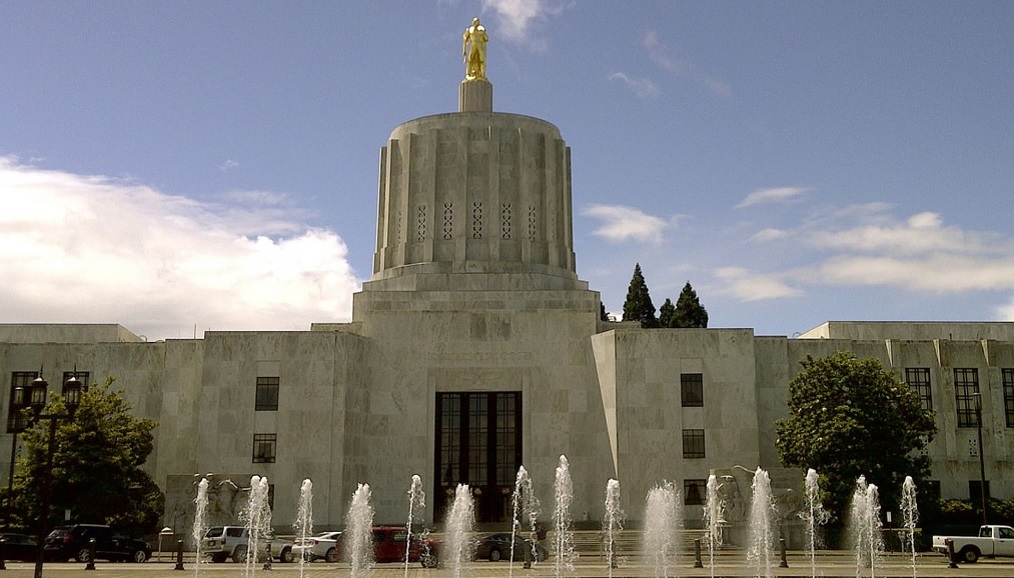Policy and Rulemaking Updates
State lands EO: On Oct. 23, Gov. Kotek’s office announced an executive order, EO 25-26, to “increase the pace and scale of adoption of climate resilient strategies into existing state programs to deliver benefits for communities and ecosystems.” The EO directs agencies to (i) “define key resilience attributes for land and waters”, (ii) “keep Oregon’s working lands and waters working”, (iii) “conserve natural lands and waters to act as resilience anchors in the face of climate change impacts”, (iv) “lead by example” and (v) “ensure a livable Oregon.” The third item directs agencies to “conserve, connect or restore ten percent of lands and waters in Oregon in ten years.” The EO is light on detail, and it is not clear how it will affect rulemaking or management of working state lands. OBI will monitor this and talk with key industry association partners.
Cleaner Air Oregon: The Department of Environmental Quality will kick off rulemaking in January to either add new or change the toxicity reference values for more than 300 chemicals regulated under the Cleaner Air Oregon program. Regulations will become significantly more stringent for most chemicals. It is worrisome that the data supporting changes to the toxicity reference values have proven to be weak or inaccurate in several cases. Read OBI’s letter raising this concern to DEQ here. OBI’s Sharla Moffett will serve on the rules advisory committee.
Possible 2026 tax hikes: The Oregon Legislature is unwisely studying options to raise taxes on Oregonians – potentially by billions – during 2026 session. Following through would double down on policies that have taken Oregon’s general tax competitiveness from 7th in 2019 to its current ranking of 35th and that have increased Oregon’s effective business tax burden 33% between 2019-2023. After defeating federal disconnection (HB 2092) in 2025, OBI anticipated disconnection would be a topic for 2026. Tax increases might not stop there, however. According to information OBI has received, the Legislature is studying the elimination or modification of the home mortgage interest deduction, other itemized deductions and several other tax preferences meant to spur economic growth and development. The Legislature would raise approximately $3 billion for the 2026 tax year alone if it enacted all the changes on a list put together by the Legislative Revenue Office. OBI and allied groups will continue to push for spending restraint.
HB 2688 rulemaking: The Bureau of Labor and Industries has begun outreach to implement HB 2688, which requires prevailing wages to be paid for “bespoke” items fabricated in facilities separate from public works project sites. The agency recently held “listening sessions” to hear from a variety of stakeholders. The top request by participants was for BOLI to define “bespoke.” The agency also received many requests for rule clarification. For example, Gov. Kotek has said the law does not apply to housing, but BOLI would have to make that determination in the rules as the bill is not clear on that point. Additionally, some legislators have stated that the law does not apply to ODOT, but the bill contains no such exemption. Several manufacturers wondered how they would manage work assignments and pay when some work would be covered by the new law and some would not. The agency will continue to accept initial feedback through this form until Nov. 7. The rulemaking advisory committee will begin on Dec. 1 and continue through January. BOLI plans to file proposed rules in February 2026 and adopt final rules in the spring. Final rules must be adopted by July 1, when most of the law becomes operational.
SB 916 rulemaking: OBI and partner organizations have convinced the Oregon Employment Department to scale back proposed changes to unemployment insurance rules. The rulemaking process was prompted by SB 916, which makes striking workers eligible for UI benefits. Initially, OED had proposed to make drastic changes related to eligibility, in addition to rules implementing SB 916, such as removing ineligibility for incarceration, allowing UI claimants to be absent from the labor market for extended periods, eliminating time limits for when some workers could collect UI without looking for a job, and allowing claimants to search only for remote jobs. These proposed changes were alarming to employers, particularly as they were unrelated to SB 916 or other legislation. OED has now filed the proposed rules and is proposing very narrow technical changes and a rule allowing striking workers to collect UI without having to look for work if they expect to return to work when a strike is resolved. OBI believes such a rule violates the Social Security Act and expect that U.S. Department of Labor will reach that conclusion. The rulemaking hearing is scheduled for Nov. 19 at 1:30 p.m. via Zoom. The last day to submit written comments is Dec. 5.
Proposed health taxes: On Oct. 16, the Universal Health Plan Governance Board met to review the Draft Status Report on the Work of the Universal Health Plan Governance Board, which the board must provide to the Legislature in December. In considering revenue generation mechanisms, the board left no stone unturned. Taxes under consideration include new personal income taxes, corporate income taxes, corporate activity taxes and payroll taxes. Taxes aside, OBI questions the feasibility of a single-payer system, especially one that operates in a single state.
Disclaimer: Articles featured on Oregon Report are the creation, responsibility and opinion of the authoring individual or organization which is featured at the top of every article.


